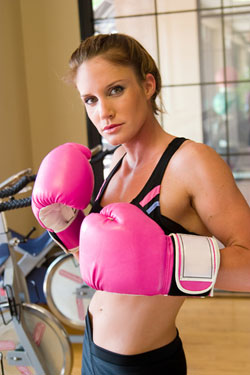 Dance classes a battlefield? “Tsk Tsk Tsk” Don’t make me “Tsk” no more!
Dance classes a battlefield? “Tsk Tsk Tsk” Don’t make me “Tsk” no more!
A few weeks ago during one of my many adventures in dance, I went to a late class. I was watching the class before while I waited for mine to start. I was disappointed to see competition between two students on the dance floor! What caused this chaos? When my class finally started, we had a senior teacher who filled in, and had a small group of dancers. She taught in a way that catered for all levels in the class instead of what was written on the studio door. She taught, we danced – there was no competition, everyone felt her “passion for dance” throughout the studio, we all had fun and there was definitely Flashdance sweat by the end of the class!
It made me wonder. The dancers I watched before my class started were competing to gain attention to improve on their own confidence instead of skills and technique. This concerns me. Competing inappropriately in class is a perfect way to delay your development in dance. If this is happening in class, what is happening outside of class time?
I work in the medical profession and the majority of the patients I have seen this year (age range between 12 – 30 years old, both male and female) suffer from issues with low self-esteem, depression, addiction, eating disorders – the list goes on and these issues can be triggered anywhere and at any time. If you are serious about getting ahead in the dancing world, look after your mind and body. Your body is the most amazing machine ever built. Prepare it properly for any task and it will do everything for you. Abusing the body will lead you to disappointment.
Dancing is not my profession, but I attend classes to learn to dance and get inside the music because I find that it helps me maintain my spiritual self. It’s OK to have good and bad classes. To me, having good and bad classes helps me learn more about myself, my strengths, my weaknesses, but it mainly helps me practice and develop my “mental toughness” (This is where one performs against the odds, bouncing back from adversity so that goals can be achieved through perseverance and patience).
I am writing this topic to make people aware, understand and remind students and teachers how important it is to project the right attitude on the dance floor. I am not writing this to judge or to criticise. Here are some of my dance class etiquette suggestions:
- Know your level. Please do not compete with anyone in the class. Focus on developing yourself, leaving the competition for auditions. That is where the actual competition is played out by serious competitors. We go to class to learn, not to compete against each other.
- Spacing. This is pure common sense. Be considerate and courteous as to who is standing around you. Don’t steal spots! If the class is crowded, please do not dance big or you might pick up some “body” along the way while you are dancing!
- Do not teach the teacher. You have paid for class, so let the teacher teach you, that is what they are there for! If you do not understand their teaching style, guide the teacher on how to teach you by asking questions. Some teachers might take offence to this and think of it as losing control of the class, but not everyone learns the same way, everybody is different.
- Feedback. This is where the connection, the honesty and the trust starts to develop between teacher and student. Teachers – growing, developing students require a strong role model and mentor, someone who they can look up to and connect with. Give students of all levels feedback, but also know when to stop giving encouragement. The student needs to learn how to develop inner confidence by themselves or else they will always look to you for approval. Students – learn to take the feedback as constructive criticism and practice developing your “mental toughness”. Remember to provide feedback to the teacher – students learn from teachers, but teachers also learn from students – there is always room for improvement and inspiration.
- Respect. The teacher is the one that has the toughest job, so students, respect the teacher for the way they conduct the class from beginning to end, and for their interpretation of choreography and music.
Teachers, be open to your students as they come to class to learn from you. Share your passion and experiences in dance with your students because without them, you won’t have the support nor will you have a class!
Learning and dancing with the right attitude will make you shine as a fellow dancer and you will achieve success not only in your dancing but in everything you do.
Negative thinking will only lead you to undesirable results, so always try and remember to think, speak, and do from the heart because at the end of the day, when you are being yourself, that is when you truly shine and grow.
So believe in who you are, be real, find your passion and above all, remember to enjoy and have fun in your next class!
By Sheba Haider













